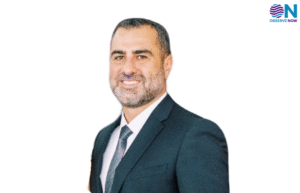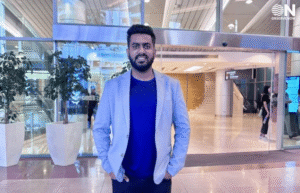New Delhi: The adoption of Generative AI in B2B marketing is rising in India. Gen AI offers efficiency in content generation, real-time customer engagement through chatbots, and improved data-driven decision-making, promising a more personalized and impactful B2B marketing landscape globally.
For B2B marketers, balancing consumer journey, content marketing, and field marketing practices is essential. The synergy of these elements, tailored to the target audience, forms a cohesive and impactful marketing approach, fostering meaningful connections. In this regard, Priyanka Chakraborty, Observe Now Media, interacted with Nitu Sharma, Head of Marketing, Iron Mountain, India.
Here are a few excerpts from the interview:
In today’s data-driven world how are you using your TG data to create better segmentation of profiles and to make sure of a hyper-personalized delivery; while cautiously not breaching privacy?
After gaining a comprehensive understanding of your customer, competition, and company, the subsequent crucial step is segmentation before targeting your customers. While every marketer aspires for hyper-personalized deliveries to tailor experiences for specific target groups, achieving this is becoming more challenging due to privacy issues.
An effective approach to maintain relevance in your campaigns is to segment based on the needs of target industry personas. Problems across industries are generally well-known and transcend the demographics and firmographics of the target audience. Another beneficial strategy is to assess the intent of the buying persona. Sometimes, there is a clear need, but there may be no intent to invest in a given solution or service due to various reasons.
As a B2B marketer today, what are your primary areas of focus- is it your consumer journey, content marketing or field marketing practices?
The synergy between the art and science of marketing is only realized when all these factors harmonize. There isn’t a one-size-fits-all solution; it hinges on the target audience and their preferences. We must be ready to deploy any of these tactics in our marketing mix. Your customer journey serves as the blueprint for defining your content and field marketing practices within your go-to-market strategy. Striking a delicate balance among these crucial elements is imperative for crafting a cohesive and impactful marketing approach, ensuring we maximize our influence and cultivate meaningful connections with our audience.
In the tech world today- redefine the purpose of Field marketing specifically event marketing for us. How are you leveraging it to its true potential?
In the tech-driven landscape, event marketing remains one of the most important field marketing tactics for me. It serves as a powerful avenue to showcase products and services, facilitating direct networking with individuals genuinely interested in what you offer.
Events, in particular, contribute significantly by enabling us to position ourselves as thought leaders in our industry, attracting the right audiences. They excel at driving brand engagement, breathing life into our tech solutions, and fostering immersive experiences through direct interactions. This establishes a tangible and memorable connection with our audience, allowing us to showcase our technology in action and address their specific needs.
To amplify the impact of events, we can leverage cutting-edge technologies like virtual and augmented reality, interactive displays, and personalized experiences. This transforms our events from being solely informative to becoming engaging and highly impactful experiences.
How do you define a successful field marketing campaign? How does it contribute to lead generation and customer acquisition now?
A field marketing campaign’s success is rooted in its alignment with the customer journey. It goes beyond merely enhancing brand awareness; it strives to yield tangible results, encompassing lead generation and customer acquisition. The aim is to create a lasting impression that transforms into measurable outcomes for the business.
To be effective, we must position ourselves where our customers actively engage, rather than assuming predefined locations. A comprehensive understanding of your customer’s psyche should guide decisions on what, where, how, and when to engage.
The triumph of a field marketing campaign is not solely determined by its success, but rather by its impact on the sales pipeline, customer acquisition metrics, and the overall return on investment.
How deep are B2B Marketeers in India into Gen AI? Can you share a snippet from your journey and a general observation prediction in your opinion on the same?
The advent of Gen AI has made a significant impact, affecting both B2B and B2C domains alike. The adoption of Generative AI in B2B marketing is rapidly gaining momentum, driven by the growing need to generate content swiftly and efficiently.
The imperative to utilize Generative AI is clear – if you don’t, someone else will, potentially causing you to miss out on capturing market opportunities promptly.
Generative AI proves instrumental in achieving excellence within short timeframes by automating repetitive tasks, allowing marketers to concentrate on strategic initiatives.
Looking forward, I foresee a widespread incorporation of AI into B2B marketing strategies. This includes the emergence of advanced chatbots for real-time customer engagement, AI-driven content generation, and improved data-driven decision-making.
The evolving landscape of Gen AI holds the promise of making B2B marketing efforts more efficient, personalized, and impactful, not only in India but on a global scale.


























